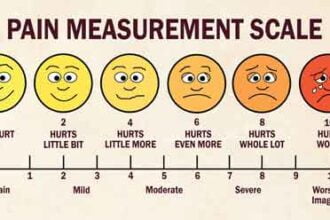After spending years in pre-med, medical school, residency, and often fellowship, doctors feel well equipped to practice. With all this training, physicians and clinicians regularly assume various leadership roles. Leadership in the medical profession involves lots of daily negotiations: negotiations with patients, hospital administrators, colleagues, sales reps, and insurers.
Medical colleges are increasingly recognizing the benefits of including communication studies in their curricula. More specifically, the best negotiation training courses are fast becoming a core part of communication studies in medicine. Key negotiation strategies for hospital administrators and doctors include:
Involve All Relevant Stakeholders
A 70-year-old man comes in with chest pains and a diagnosis of mild coronary artery disease. The condition is easy enough to treat, as long as the patient adheres to the treatment plan and takes his meds faithfully.
However, ignoring his pills may lead to myocardial infarction or a fatal heart attack. To guard against non-adherence, the doctor could get in touch with one of the patient’s adult kids to ensure the treatment plan’s implementation.
Recruiting the patient’s daughter brings in someone with aligned interests and incentives to ensure the success of a treatment plan. Working with other concerned caregivers and administrators increases the likelihood of attaining positive outcomes.
Anticipate the Needs of Others
Negotiation deals with uncertainty and conflict, and preparation remains the best negotiation strategy. One of the essential steps in medical negotiation preparation entails making a realistic judgment on your relative bargaining strength. Assessing your bargaining power requires that you also critically examine others’ needs.
- Who will you be negotiating with?
- What outcome will others be looking for?
- What are others’ interests?
- What concessions may others offer and what value can you offer in exchange?
- What is the least I unreservedly need to get?
Individual Needs Vs. Systems
The healthcare environment is often fraught with limited resources. Where many underlying interests are competing for scarce resources, it is critical to have a systems approach without compromising individual needs.
For instance, some workplace negotiation points to establish on may include:
- What are the rules governing diagnostic imaging?
- Should Emergency Room cases take precedence over inpatient cases for use of the MRI machine?
A negotiating course designed for doctors can enhance medical staff’s professional performance and boost hospital efficiency and effectiveness through training that caters to these industry-specific needs.
Prioritize Needs over Wants
Quite often, a medical professional may become blindsided during employment negotiations due to lack of adequate preparation. Getting blindsided is often a result of a failure to rank priorities effectively.
For example, are you more interested in the signing bonus or ongoing productivity bonuses? Do you value more in-house training or prioritize a more flexible work schedule?
Employment negotiations between doctors and hospitals typically aim for mutually satisfactory agreements. Prepare ahead by first addressing what you need before focusing on what you want. Ranking your priorities will help you develop a success blueprint which should benefit your career and advance the hospital’s goals.
Understand the Communication Environment
Gone are the days when what the doctor said was held almost holy and unbreakable. Nowadays, patients are self-diagnosing using online resources and apps. Nonetheless, even with these technical and cultural shifts, physicians are still considered as some of society’s most credible professionals.
Representatives for big pharma are regularly marketing new drugs and medical aids. Hospitals are offering new treatment systems. Technology is coming up with new tools for different kinds of medical care. As a doctor, you might get patients with complicated conditions requesting to switch to experimental drugs.
Before you make decisions based on word from the patients and pharmaceutical sales reps, it’s useful to determine the communication environment. Determine which information is real, qualified and relevant, and what’s misinformation. Ask yourself questions such as:
- Is the pharmaceutical sales rep only after making a big sale or are there real medical benefits to the new drug?
- Is the patient as well informed as they claim to be or merely relying on anecdotal evidence?
- Are there set protocols and precedence for this type of scenario or are the doctor and hospital free to pursue alternatives?
- Is there adequate insurance cover for both patient welfare and to guard against malpractice suits?
Negotiation training can help doctors keep the patient on the correct treatment regime even when the media and pharmaceutical companies are offering experimental alternatives.
Worth Remembering
Negotiations in healthcare settings may not just be about relationship building. More often than not, medical negotiations are issues of life and death. Healthcare negotiations require an open mind from both the expert caregiver, patients, administrators, and other healthcare stakeholders.









